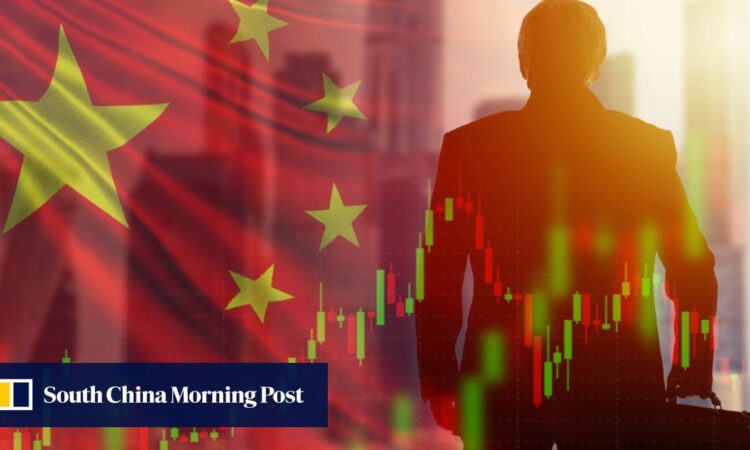Enduring pain: 90% of China’s equity funds suffer as market loses US$1 trillion of value

The gloom has infected the stock market, with the CSI 300 Index tumbling 14 per cent so far this year. After a 22 per cent slump in 2022 and a 5.2 per cent drop in 2021, the market is set for its longest annual run of losses since its inception in 2002. In Hong Kong, the Hang Seng Index is heading for a fourth year of slump, the worst since its inception in 1969.
“The macro complexities at home and abroad continue to test investors’ nerves,” Chang Zhen, a portfolio manager at Harvest Fund Management, said in a third-quarter report to clients, citing heightened US-China tensions, the Israel-Gaza war and weak domestic economic recovery. “There is strong risk-averse sentiment and the market is trying to regain its confidence.”
Chang’s US$76 million Harvest Return Selected Equity Fund has fallen 23.8 per cent this year. The fund’s top holdings, including battery maker CATL, developer Poly Developments and sportswear manufacturer Anta Sports Products, have plunged by 26 to 31 per cent.
It’s no wonder that Chinese households are holding onto their savings, and stepping up redemptions to prevent deeper losses, according to the Asset Management Association of China. The nation’s mutual fund industry has shrunk to 27.38 trillion yuan from a peak of 28.8 trillion yuan in July this year.
Last year, nearly 98 per cent of actively managed onshore equity funds took a beating, with 829 out of the 847 funds reporting losses, according to 51iFind. Of the 18 funds that made profit last year, many have struggled in 2023, with six of them posting losses.

Managers who went overweight on the “new energy” theme have seen some of the biggest losses. The US$32 million JPMorgan HeXin Selected Equity Fund has plunged 42 per cent this year to rank as one of the worst performers, according to 51iFind data. The fund’s top holdings, which include CATL, JA Solar and Jinko Solar, have tumbled by 29 to 57 per cent.
The US$95 million BOC International Selected Industry Equity Fund has suffered the same fate, incurring a 37 per cent loss, as top bets like battery maker Eve Energy and BYD skidded by 24 to 55 per cent.
“The continuous outflow of foreign capital, among other factors, have brought significant downward pressure on the market this year,” Lin Chengbo, manager of the BOC fund said in his quarterly report. “It will still take some time for the market to regain confidence from the current low levels.”
China to suffer US$65 billion capital outflow in 2024 as risks, sentiment drag
China to suffer US$65 billion capital outflow in 2024 as risks, sentiment drag
Exchange-traded funds that track the gaming sector have been one of the few bright spots this year. ETFs tracking the CSI Animation and Game Index have returned as much as 52 per cent, claiming the top three spots in equity-fund rankings compiled by 51iFind.
On the flipside, fund managers looking away from China’s struggles at home have been handsomely rewarded for their bets. Qualified Domestic Institutional Investor or QDII funds that track global indices like the Nasdaq and S&P 500 accounted for more than half of the top 20 performers.
China mulls trading cost cuts for mutual funds, to regulate commissions
China mulls trading cost cuts for mutual funds, to regulate commissions
Market bulls are undeterred. With policy support gaining traction, the economic outlook remains promising, according to Harvest Fund’s Chang. Quality consumer stocks, manufacturing giants with international competitive edge, and innovative tech firms still have huge potential to deliver solid earnings, she said.
“Despite the overall pessimistic sentiment, many individual stocks have still delivered outstanding performance this year,” Chang said. “We continue to believe that buying into quality companies at reasonable prices and holding long-term will help us achieve excess returns.”
